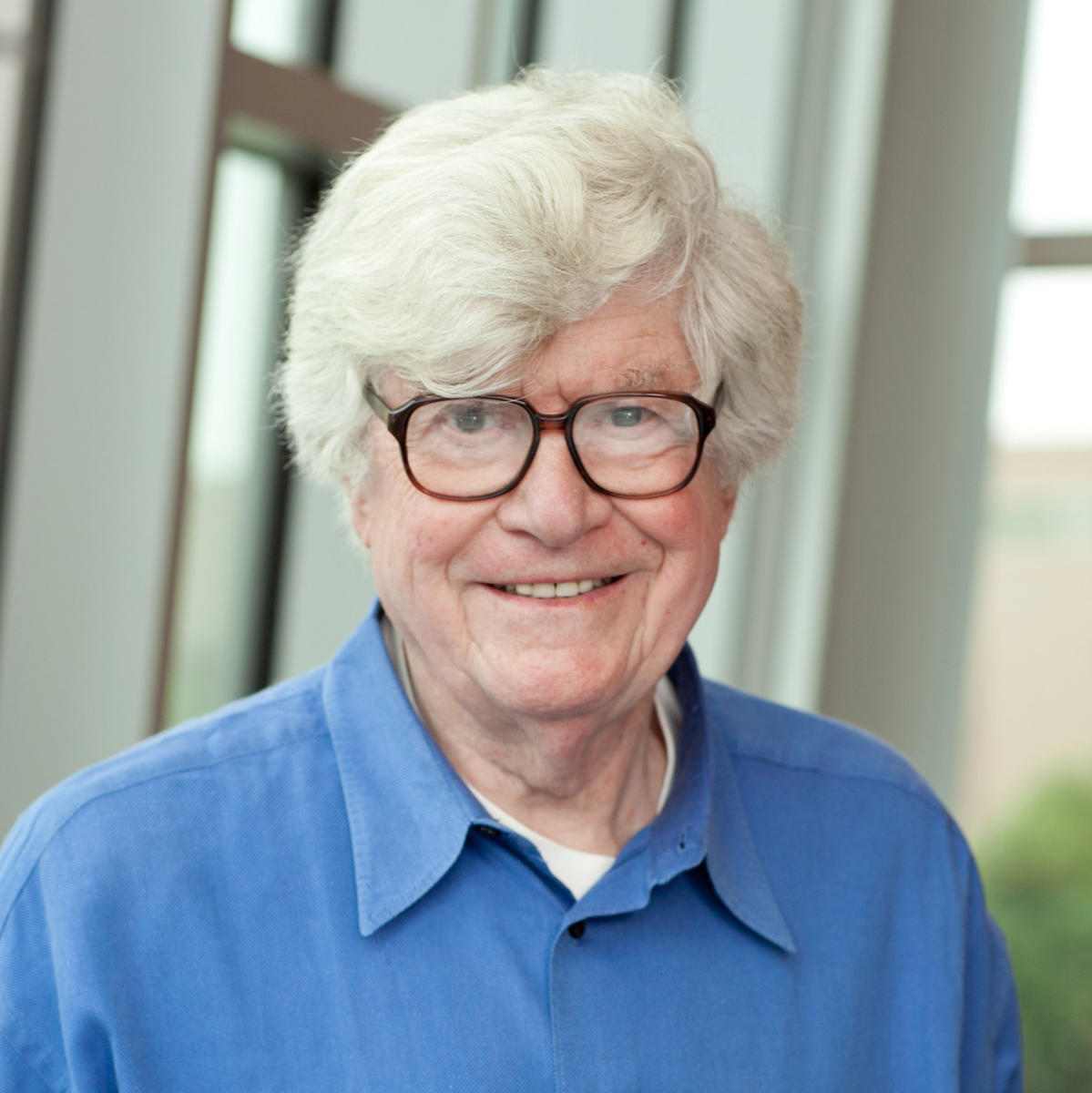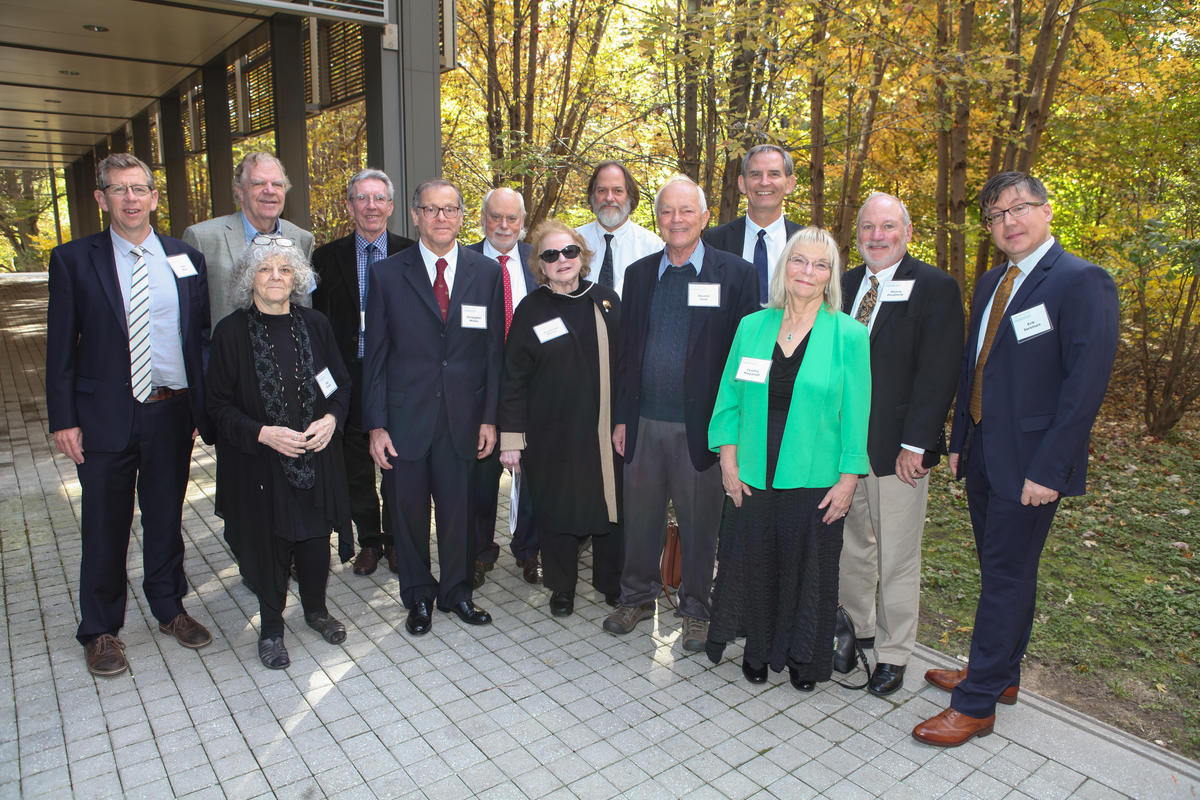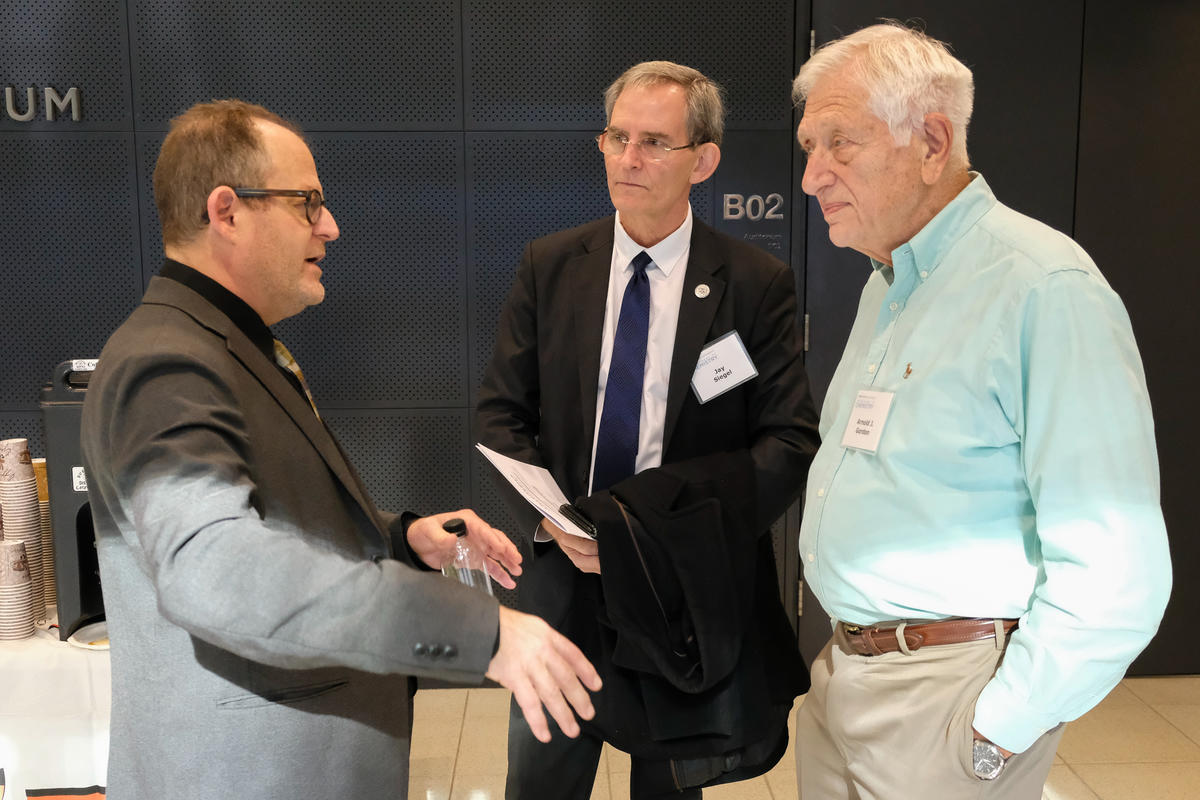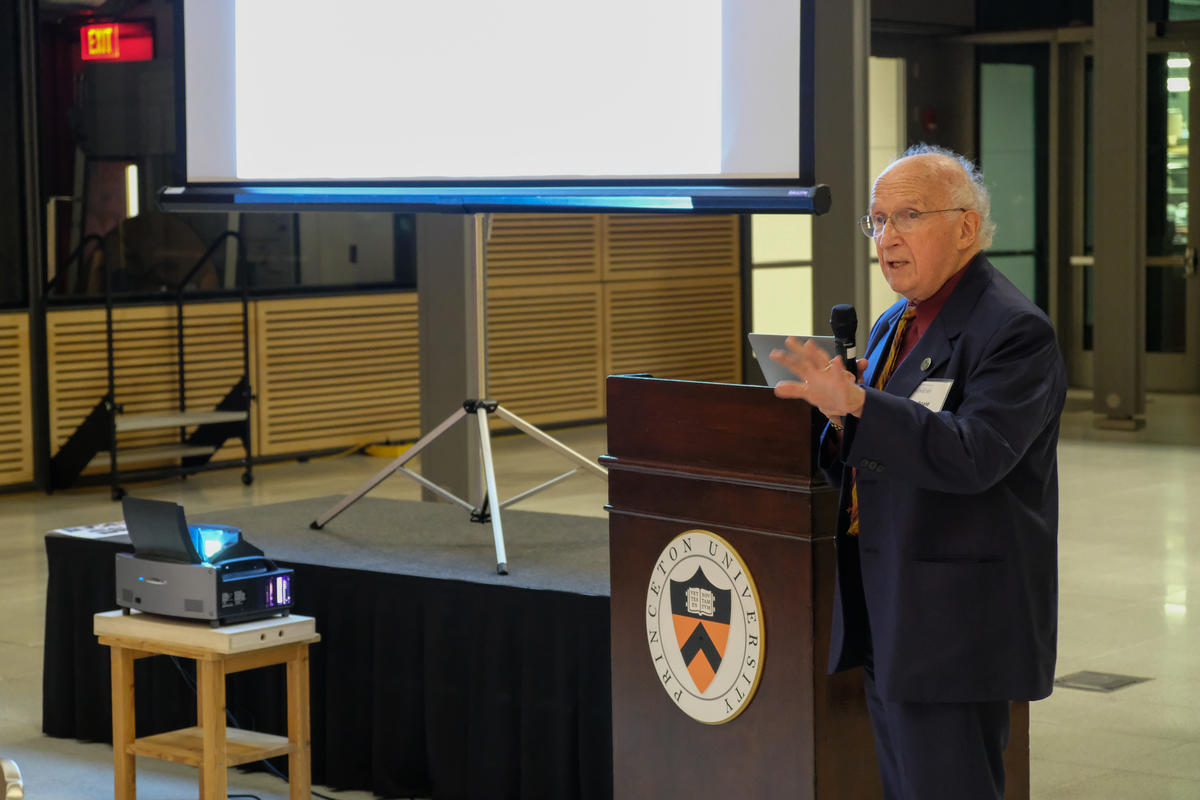Kurt M. Mislow, stereochemistry pioneer, remembered at memorial symposium

photo by Denise Applewhite
One hundred registered guests and many more observers gathered at Frick Laboratory on Thursday, Nov. 1 for a symposium to remember the life and work of Kurt M. Mislow, the Hugh Stott Taylor Professor of Chemistry Emeritus, who died Oct. 5, 2017.
Mislow, a pioneer in the theory of modern stereochemistry, was “a towering figure in the field of chemistry” said Tom Muir, the Van Zandt Williams Jr. Class of 1965 Professor of Chemistry and chair of the department. “His contributions to stereochemistry and topology have had a profound impact on generations of scientists, not just in chemistry.”
“In addition to being a scholar of the very highest rank, Kurt was a dedicated and gifted teacher and influential leader in this department,” continued Muir.
Mislow joined the Princeton faculty in 1964, served as Chair of the department from 1968 through 1974, and transferred to emeritus status in 1988. He was born in Berlin, but with the rise of National Socialism in Germany, his family moved first to Milan in 1936, then to London in 1938, and finally to the United States in 1940. He received his bachelor’s degree from Tulane University in 1944 and his Ph.D. from the California Institute of Technology, under the direction of Linus Pauling, in 1947. He joined the faculty of New York University before coming to Princeton.
A principle focus of Mislow’s research was introducing the concepts of symmetry and chirality into stereochemistry to better understand how structure relates to function. Stereochemistry is a subject that analyzes the three-dimensional arrangements of molecules and atoms in space. It is fundamental to many scientific disciplines, including physics, biochemistry, genetics, pharmaceuticals and nanotechnology.

photo by C. Todd Reichart
Among the presenters were former students and collaborators of Mislow’s from numerous international institutions, including four Nobel Prize winners. The presentations were scientific in nature, focusing on the principle topics of Mislow’s research, stereochemistry and topology. And nearly all the speakers had something to say about Mislow as a researcher, scholar, teacher and citizen.
One theme was the exacting and uncompromising nature of Mislow’s scholarship. “All of Kurt’s students will agree that he didn’t like it if you cut corners in research, and if he spotted a rounded corner he wasn’t too shy about saying so,” said Bart Kahr, Professor of Chemistry in the Molecular Design Institute at New York University, who received his Ph.D. from Princeton in 1988 under Mislow.
Several speakers noted that Mislow frequently corrected errors in the literature. His theoretical grasp provided strong intuitions that “this can’t be right,” said Cynthia Maryanoff, Distinguished Professor at the Baruch S. Blumberg Institute, who also received her Ph.D. from Princeton under Mislow. She recounted Mislow “running down the hall waving a paper over his head,” and being corralled with a visiting scholar into making the compounds necessary to prove Mislow’s instinct that the paper’s conclusion was in error. It seemed they were chosen simply because they happened to be the first people Mislow ran into.

photo by C. Todd Reichart
Mislow was also an enthusiastic teacher and mentor, according to a number of the speakers. Mislow’s son, Christopher, said, “He was by nature and not just vocation a teacher. Learning excited him. And few things brought him greater joy than sharing that excitement with others.” Several of Mislow’s former Ph.D. students described his research group as intellectually stimulating and challenging yet collegial and supportive.
Jay Siegel, who received his Ph.D. from Princeton working with Mislow and is now Dean of the School of Pharmaceutical Science and Technology at Tianjin University, said Mislow was a humanist and politically active citizen, concerned about the social and moral questions of his time. In 1988, he taught a graduate course, “Social Responsibilities of Scientists,” in which he addressed the moral questions of chemical, biological and nuclear weaponry; genetic engineering; and other scientific topics with ethical or moral implications. Given his family’s experience in Nazi Germany, he held dear the right of dissent, and he believed that scientists had an essential role in the public discourse.
The picture of Mislow painted during the symposium was that of a dedicated and uncompromising researcher and teacher of great commitment and personal integrity. Scientifically, Mislow will be remembered for his early and pioneering contributions to stereochemistry. Indeed, the very lexicon used to describe the complexity of molecules was created by Mislow and is now standard in the field.

photo by C. Todd Reichart
Mislow is survived by his wife of 50 years, Jacqueline, a physician. He was predeceased by their son, John, a 1992 Princeton grauduate and a neurosurgeon at Brigham Hospital in Boston. He is survived by John’s two sons, Max and John. He is also survived by Christopher, a 1975 Princeton alumnus and attorney in Charlottesville, Virginia.
